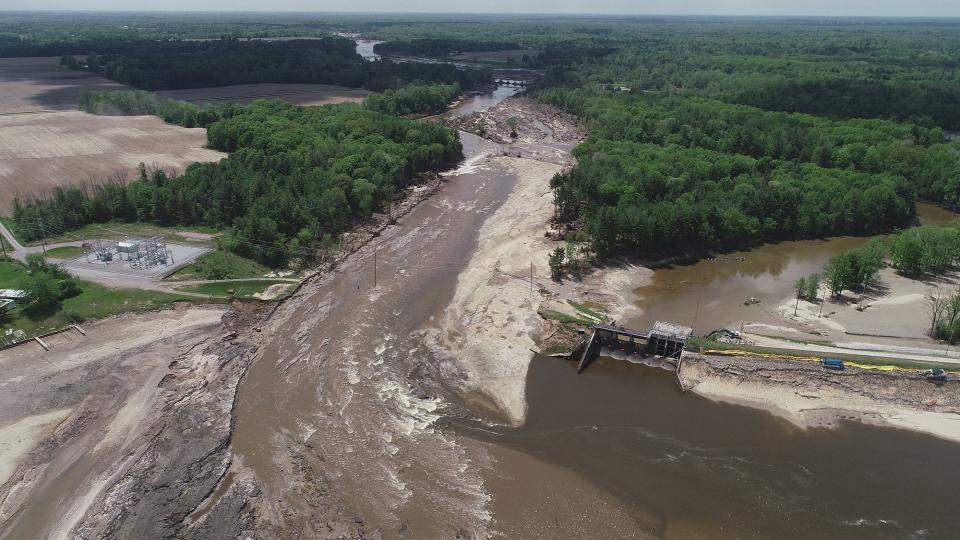3 years after Midland dam collapse, Michigan judge pressures state to move on lawsuits
LANSING — A Michigan judge on Friday sought to speed up action on lawsuits filed over the collapse of a Midland-area dam, saying the state is responsible for undue delays in the cases brought on behalf of thousands of residents and businesses devastated by the flooding that resulted.
Michigan Court of Claims Judge Douglas Shapiro lifted holds on the 25 lawsuits, which were filed separately in 2020 and later consolidated into one case, and gave the Department of Environment, Great Lakes, and Energy 28 days to file a response.
The suits allege state actions contributed to the failure of the privately owned Edenville Dam on May 19, 2020. Those alleged actions include wrongfully certifying that the dam, built in 1924 to hold back water from the Tittabawassee and Tobacco rivers, was in fair condition and capable of use, denying a permit to lower water levels on one side of the dam, and authorizing the raising of the water levels in the spring of 2020.
"The court notes that his case was filed over three years ago and that no answer has ever been filed and that no discovery has yet occurred in light of defendant's repeated, time-consuming and unsuccessful attempts to obtain appellate reversal of this court's June 29, 2021 order," rejecting the state's claims of governmental immunity, Shapiro wrote.

"Judicial efficiency, fairness and preservation of evidence all require that the case now progress without further delay."
Both Shapiro and the Michigan Court of Appeals have ruled that governmental immunity is not a defense in cases where property owners allege "inverse condemnation" — a taking of their land by the state without just compensation. The Michigan Attorney General's Office agrees with that, but argues the plaintiffs' claims, "while styled as inverse condemnation claims, are actually tort claims to which immunity applies."
Shapiro scheduled a status conference for Nov. 7 and told the parties to either agree on a case schedule or file separate proposed schedules by Friday.
He rejected an argument from the Michigan Attorney General's Office that the case should remain on hold for now, despite a Sept. 7 published opinion by the Michigan Court of Appeals upholding Shapiro's earlier ruling. In that opinion, the Court of Appeals noted the state filed several motions to throw out the lawsuits before the cases were consolidated, "raising nearly identical arguments ... in each motion."
Danny Wimmer, a spokesman for Attorney General Dana Nessel, said the AG's Office appealed Shapiro's 2021 order and is now appealing one step higher.
"When the state sought permission to appeal, the Court of Appeals granted that permission, which showed that the Court of Appeals thought it appropriate to review the lower court’s decision in this case," Wimmer said.
"The state has now asked the Michigan Supreme Court to review the Court of Appeals’ decision. There is nothing inappropriate or unusual about seeking an appeal. And none of the parties control the schedule by which appellate courts decide appeals."
Michael Pitt, a Royal Oak attorney representing plaintiff David Krieger, said the judge is justifiably annoyed with the state.
"It is refreshing when a reviewing court admonishes the state of Michigan for delaying the day of reckoning and denying justice to thousands of its citizens by pretending it is immune from suit when it is not," Pitt said.
Contact Paul Egan: 517-372-8660 or pegan@freepress.com. Follow him on X, formerly known as Twitter, @paulegan4.
This article originally appeared on Detroit Free Press: Judge orders swift action on 2020 Midland-area dam collapse lawsuits

